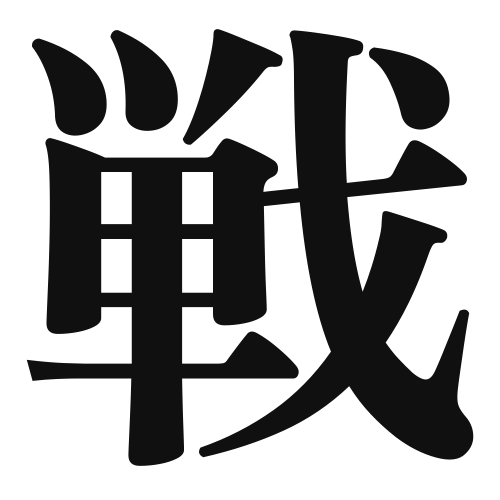1. Overview of Meaning
The kanji 戦 (sen) means “war” or “battle.” It represents conflict or struggle, often in a military context, but can also refer to competition in various fields.
2. Formation and Radicals
The kanji 戦 is a compound character (会意文字) that combines elements to convey its meaning. It consists of the radical 戈 (which represents a weapon) and the phonetic component 占 (which suggests the sound).
The radical 戈 is associated with weapons and warfare, reinforcing the character’s meaning related to conflict.
3. Examples of Usage
Common words and phrases that include 戦 are:
- 戦争 (sensou) – war
- 戦闘 (sentou) – combat
- 戦略 (senryaku) – strategy
Example sentence in daily conversation:
「彼は戦争の歴史に興味があります。」 (Kare wa sensou no rekishi ni kyomi ga arimasu.) – “He is interested in the history of wars.”
4. Synonyms and Antonyms
Similar kanji with related meanings include:
- 闘 (tou) – to fight, which emphasizes the act of fighting rather than the broader concept of war.
Antonyms include:
- 和 (wa) – peace, which represents harmony and the absence of conflict.
5. Cultural and Historical Background
The kanji 戦 is deeply rooted in Japanese culture, reflecting the historical significance of warfare in shaping the nation. It appears in various proverbs and idiomatic expressions, such as:
- 戦うべき時に戦う (Tatakau beki toki ni tatakau) – “Fight when you need to fight,” emphasizing the importance of knowing when to engage in conflict.
This character serves as a reminder of Japan’s tumultuous history and the lessons learned from past conflicts.
